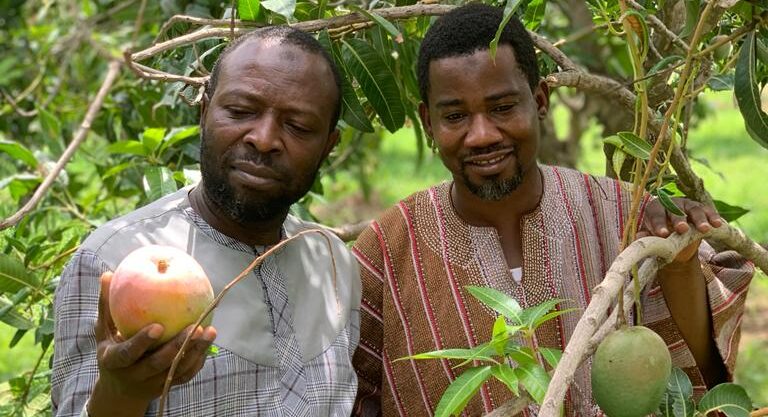Food production in Africa over the years has realized a decline. This decline can be attributed to poor soil health, and loss of functional ecosystems due to the unregulated use of chemicals. The environment as a natural body is linked and interdependent. Plant performance depends on the soil, other plants, insects, water etc., and the interrelationship between them can have a dramatic effect on crop performance. SustInAfrica is focused to achieve schemes that would enhance sustainable food production and ecosystem restoration through resilient farming systems.
Treatment effect
Intercropping in mango agroecosystems is an agroecological practice that allows the integration of diverse crops and trees to grow together in close space. This idea of intercropping is to promote biodiversity, by integrating three crops in a mango plantation. The selection considered the flower quality as this could attract pollinators and parasitoids. Intercrops could serve as mulch thereby reducing soil water loss and reducing erosion. A functional ecosystem is made up of different plants living together. The advantage is different plants attract different insects and other bio actors. In this light, nature is more equipped to handle some of its challenges. In a well-diversified ecosystem, both harmful and harmless insects can be found and in some situations, some insects are able to limit the performance of certain harmful ones. Similarly, certain plants have inhibitory properties and when present in the location can inhibit the performance of certain pathogens. This fit can be very difficult to achieve in a monoculture system where the plant is cultivated.
Fieldwork


Project partners visit Tamale AEZ
Project partners from Europe visited the Tamale AEZ in January 2022 to understand the conditions at the project sites and also to provide critical training on UAV campaigns and InsectaMon approaches and proper use of field equipment (Plate 1-4).







Plate: 4 Training on (A) UAV flight campaign by DexAfrica (B) biodiversity collection with pitfall trap by Luke and (C) LAI and SPAD measurements by ATB
Surveys
A survey is a research method used for collecting data from a predefined group of respondents to gain information and insights into various aspects of a population, including socioeconomic, as well as biophysical characteristics. Usually, this is a method of gathering information from a sample of people, intended to generalize the results to a specific group or a larger population. As part of this project, baseline surveys are being conducted to gather quantitative data among mango-producing farmers/households in Tamale AEZ. Focus group discussions will also be conducted to obtain qualitative information about communities’ cropping history, gender dynamics, climate change, and water management. These issues affect agricultural productivity through technology adoption among farmers and communities.



